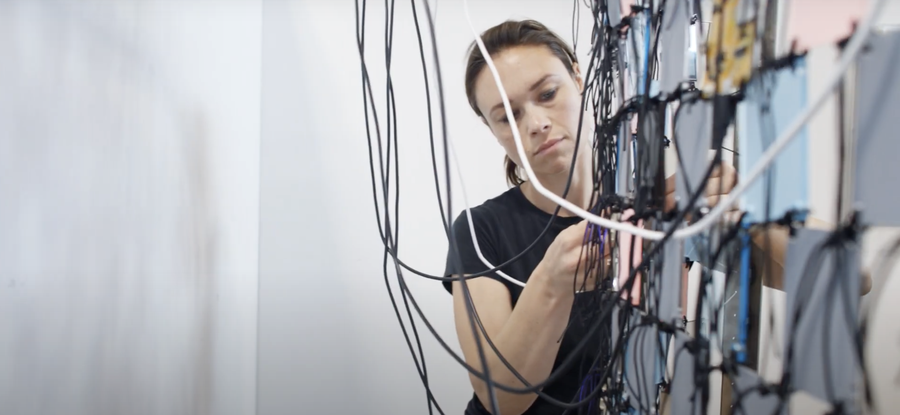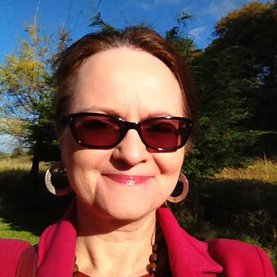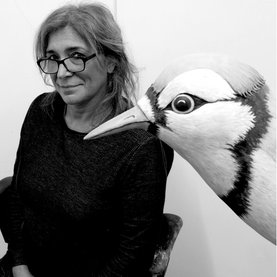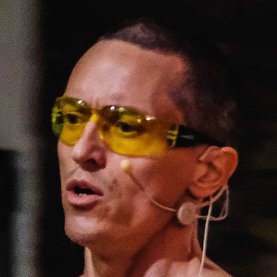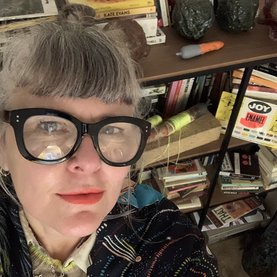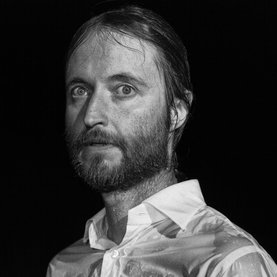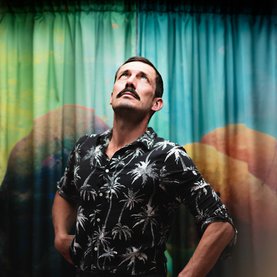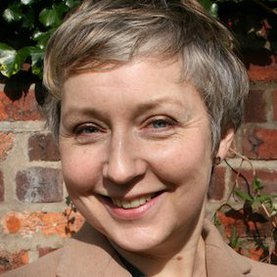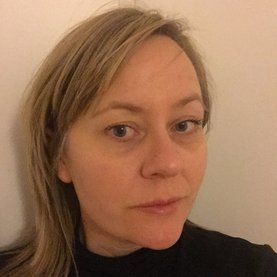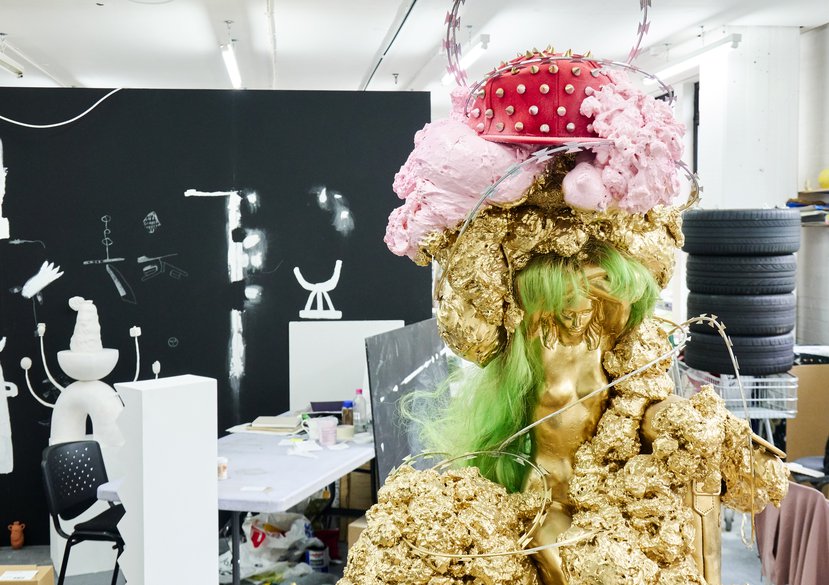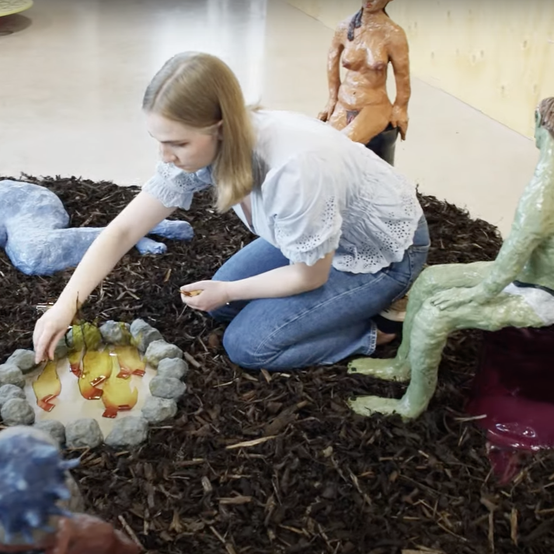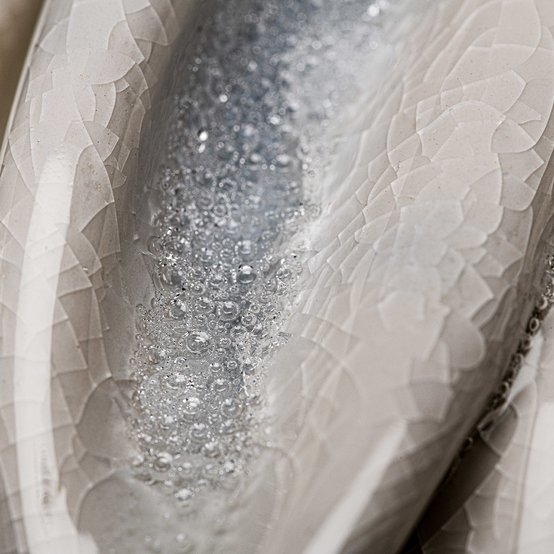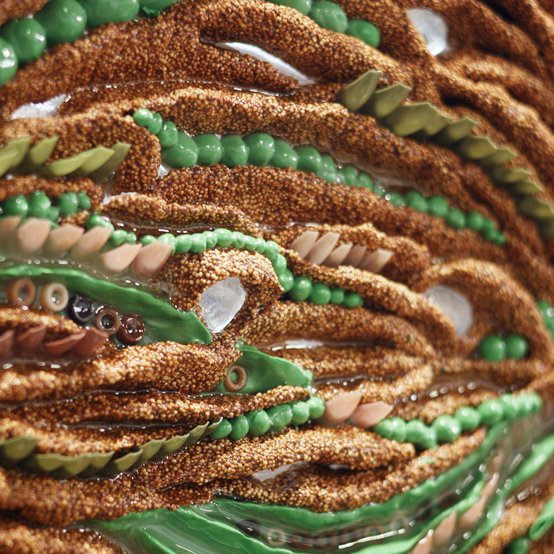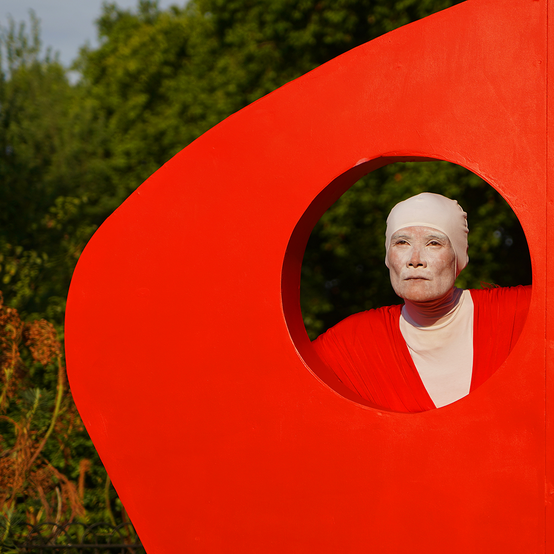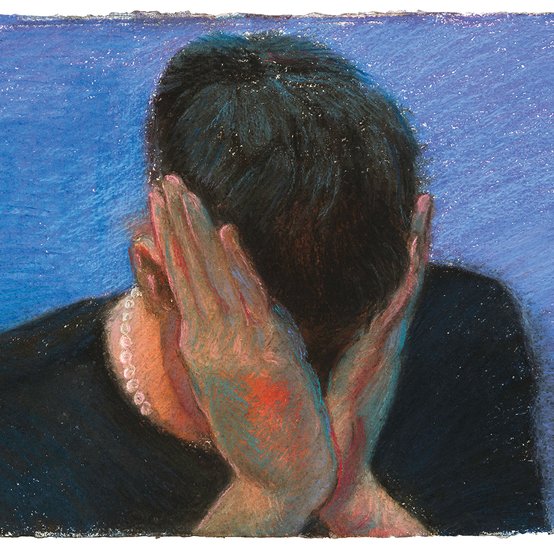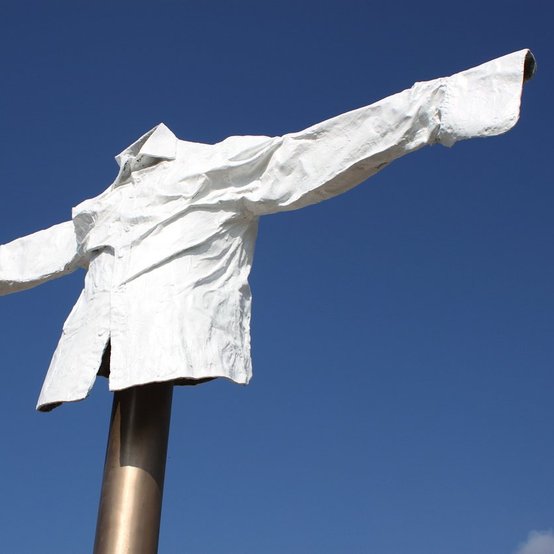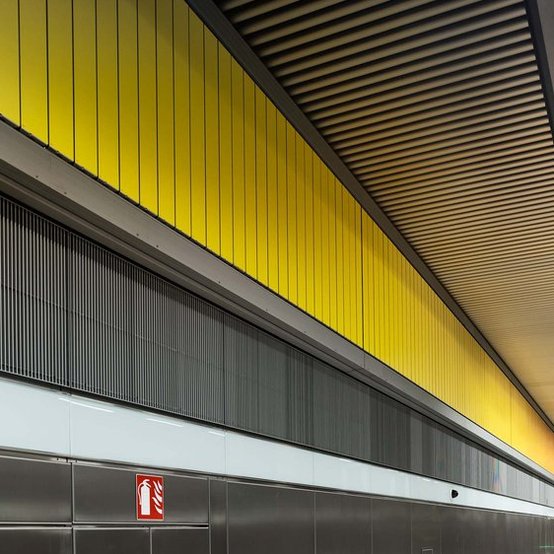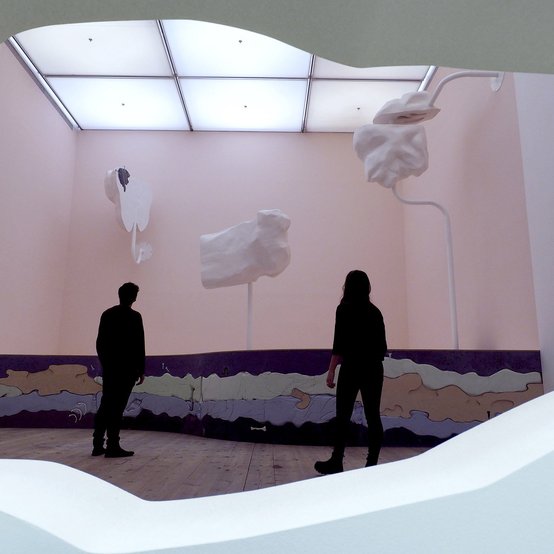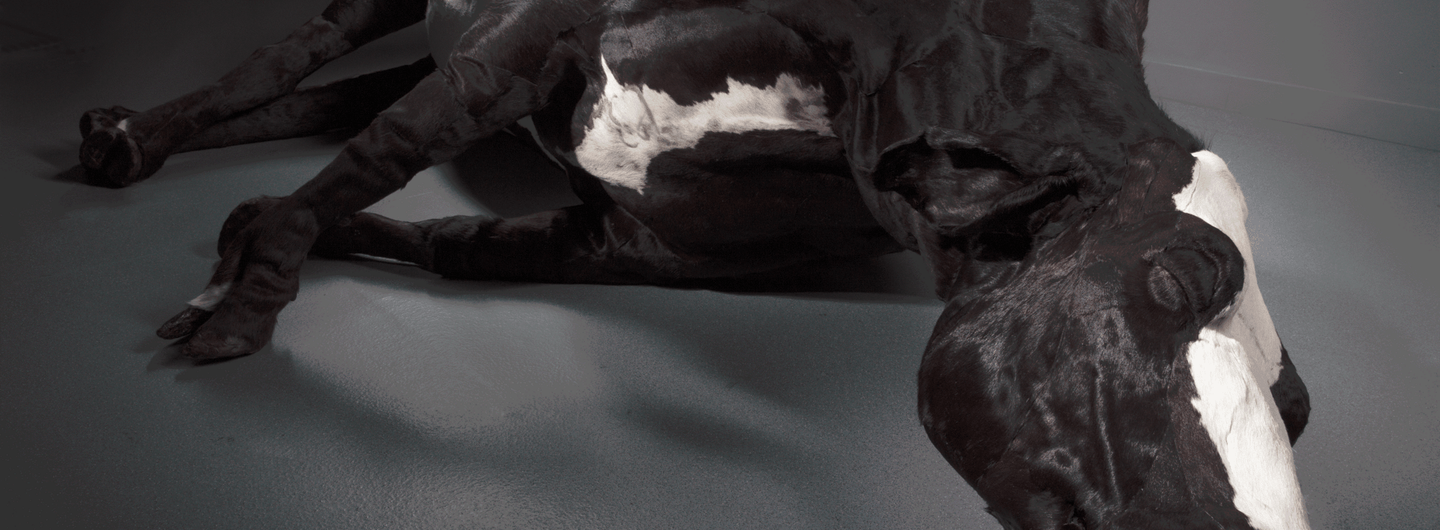
Overview
Contemporary sculpture encompassing, installation, object-making, moving image, sound, social and public practices.
Key details
- 180 credits
- 1 year programme
- Full-time study
School or Centre
Location
- Battersea
Application deadline
- 14 Aug 2024
A critical environment in which to explore contemporary issues through the making of sculpture.
Sculpture at the RCA spans object-making, public art, performance, sound, film, video and more. Rather than focusing solely on Sculpture’s manifestations, we see the discipline as a method for advancing the production of art.
Join a Master’s programme that encourages diverse, experimental approaches. We encourage you to take a critical, reflexive approach in your work and give you the knowledge to situate your practice within contemporary social, political and economic contexts.
Our team of highly regarded teaching staff and guest lecturers highlight the value of research and experimentation to an artistic practice. You’ll be part of a collaborative and interdisciplinary community looking to innovate with technology and imagine new spaces and materials to bring about social transformation.
Applications for the September 2024 intake are open and will be assessed on a rolling basis. Programmes will close for applications when the maximum number of places have been awarded, or at the final deadline on 14 August, 12 noon (UK time).
Explore student and graduate work
In July 2023, students presented a series of exhibitions and events featuring their final work. Explore online at the RCA2023 website.
You can also view previous events and exhibitions online at Showcase.
Explore Festus, the RCA Sculpture programme's annual series of collaborative projects with external partners.
Find out more about this programme
Catch the replays from our November 2022 online Open Day.
Gallery
Staff
Facilities
The School of Arts & Humanities is located across our Battersea and Kensington sites.
View all facilitiesAll full-time students on fine or applied arts programmes are provided with studios or workspace, and access to specialist workshops. There are a number of bookable seminar and project spaces across the site available to all Arts & Humanities students.
Our alumni
Our alumni form an international network of creative individuals who have shaped and continue to shape the world. Click on each name to find out more.
Where will the RCA take you?More details on what you'll study.
Find out what you'll cover in this programme.
What you'll cover
How will I learn?
There will be several opportunities to collaborate with others, but at a minimum, your programme will include 277 contact hours and 1523 independent study hours.
Contact hours can consist of lectures, seminars, tutorials, critical forums and workshops, among other types of teaching delivery.
Teaching types included on your programme can consist of briefings, projects, tutorials, seminars, lectures, critical forums, technical inductions, technical workshops, offsite visits and blended learning.
Programme structure
The programme is delivered across three terms and includes a combination of programme, School and College units.
Term 1
In Sites and Situations (45 credits), you identify the intention of your practice, its context and its relation to site and material. This begins with an orientation of the culture and philosophy of the programme, the location (city and building), facilities, staff and other students’ work.
Sites and Situations embeds the central notion of thinking-through-practice. This is achieved through tutorials, critiques, seminars, panel talks and off-site activities.
Sites and Situations supports you through the production of work, demonstrating the ability to develop a creative, innovative and individual practice. Through the unit, you will locate their work within a critical context that reflects current and emerging approaches to the production of sculpture and the wider arts and humanities.
Term 2
The Expanded Field (30 credits) you identify the future direction of your practice, its relation to materiality and immateriality. There is a focus on collaboration and an interdisciplinary context. This further embeds the culture and philosophy of the programme: experimentation, innovation and critical reflection.
The Expanded Field encourages the development of an individual studio practice, within a wider matrix of professional relationships. This is achieved through collaborative off-site projects, workshops and a lecture series that is designed to support and encourage self-reflection, creative responses and a critical understanding of the creative economy.
The School-wide unit Urgency of the Arts (15 credits) asks how arts and humanities research and practice can engage with our current socio-political climate, and how might it shape, be necessary and essential in contemporary cultural debates.
The unit introduces you to diverse perspectives, approaches and methods relevant to contemporary practice and thought in the arts and humanities. The delivery, predominantly based on workshops and featuring specialist presentations by leading artists, aims to assist you in recognising, questioning, expanding, and reevaluating your own artistic practices and disciplinary assumptions.
Through interactions with staff and students from across the School, as well as through a variety of methodological approaches, students will develop an understanding of the contemporary concerns that shape and influence artistic practice.
You will be supported in understanding their work's possibilities, complexities and impact. You will be encouraged to contextualise it within broad cultural landscapes to recognise and emphasise its potential and the complex ways in which your work may be received and understood.
Terms 1 and 2
AcrossRCA (College-wide unit, 30 credits)
Across terms 1 and 2, you will participate in AcrossRCA. This unit aims to support you in meeting the challenges of a complex, uncertain and changing world by bringing you together to work collaboratively in interdisciplinary teams on a series of themed projects informed by expertise within and beyond the College.
These projects will challenge you to use your intellect and imagination to address key cultural, social, environmental and economic challenges. In doing so, you will develop and reflect on the abilities required to translate knowledge into action, and help demonstrate the contribution the creative arts can make to our understanding and experience of the world.
Term 3
The Independent Research Project (60 credits) is an opportunity to build a body of work that addresses the key ambitions of your research and practice. You will work towards presenting a work, or works, in the IRP Public Exhibition, which enables you to explore how to activate your work in a public context, experiment with the most appropriate forms of realising your ideas and gain critical feedback.
The Independent Research Project exhibition takes place mid-way through the unit. It will be followed by a reflection and further development period, which emphasises planning for continued practice and research post-graduation.
The Independent Research Project offers a point of synthesis through exhibition and subsequent critical reflection. The focus is on self-directed study.
Assessment will be based upon the Portfolio of Practice - a reflective document that looks at the key elements of development which led to your research and exhibition. Also, how has creative identity been forged for future practice?
The Portfolio of Practice will include the ideas and context from which the work emerged, including experimentation, decision-making, conceptual ambition, (im)materials and meaning.
AcrossRCA
AcrossRCA is a compulsory 30-credit unit which is delivered as part of all MA programmes.
Situated at the core of your RCA experience, this ambitious interdisciplinary College-wide unit supports you in responding to the challenges of complex, uncertain and changing physical and digital worlds. Developed in response to student feedback, AcrossRCA creates an exciting opportunity for you to collaborate meaningfully across programmes.
Challenging you to use your imagination and intellect to respond to urgent contemporary themes, this ambitious unit will provide you with the opportunity to:
- make connections across disciplines
- think critically about your creative practice
- develop creative networks within and beyond the College
- generate innovative responses to complex problems
- reflect on how to propose ideas for positive change in local and/or global contexts
AcrossRCA launches with a series of presentations and panel discussions from acclaimed speakers who will introduce the themes and act as inspirational starting points for your collaborative team response.
Delivered online and in-person across two terms, the unit has been designed to complement your disciplinary studies and to provide you with a platform to thrive beyond graduation.
Requirements
What you need to know before you apply
Candidates are selected entirely on merit and applications are welcomed from all over the world. The selection process considers creativity, imagination and innovation as demonstrated in your portfolio, as well as your potential to benefit from the programme and to achieve high MA standards overall.
You must have a good first degree in sculpture or a relevant subject, as well as being able to display a facility with materials and techniques. You’ll also be knowledgeable about the history and cultural relevance of the disciplines pertinent to the arts and humanities, as well as be able to hold and articulate a view of your own work in relationship to that. You should be able to critically reflect on your work, to question received modes of production and frameworks, and metabolise academic, social and philosophical encounters.
What's needed from you
Portfolio requirements
The Sculpture programme offers an inclusive supportive pedagogic environment for students to explore and engage with current issues and debates surrounding contemporary sculpture. Our curriculum is designed to develop the creative and contextual aspects of our students work. We work with our students to develop the potentials for how they present their work professionally to others.
We ask you to submit documentation of your work in PDF format. You have one slot/basket available to you which can accept one pdf. Your PDF should be a maximum of 15 pages in total. It should include at least 10 to 15 images of your work with the title, date, size and material/media of each work clearly indicated. A limited number of process images of how a work developed can be included. From your portfolio we want to be able to see your work, and make some assessments as to how you approach the conception and making of your sculptures. You may add relevant links to external sites.
Video requirements
We ask that you upload a two-minute video recorded on your phone or laptop, speaking to us directly. High production qualities are not needed. We will review the work in your portfolio, so keep your video simple.
In your film we would like to hear about how you approach the conception and making of your sculpture. The issues, and concerns that drive you to create Sculpture? And how you position your Sculpture in a contemporary context?
English-language requirements
If you are not a national of a majority English-speaking country you will need the equivalent of an IELTS Academic or UKVI score of 6.5 with a 6.0 in the Test of Written English (TWE) and at least 5.5 in other skills. Students achieving a grade of at least 6.0, with a grade of 5.5 in the Test of Written English, may be eligible to take the College’s English for Academic Purposes course to enable them to reach the required standard.
You are exempt from this requirement if you have received a 2.1 degree or above from a university in a majority English-speaking nation within the last two years.
If you need a Student Visa to study at the RCA, you will also need to meet the Home Office’s minimum requirements for entry clearance.
Fees & funding
For this programme
Fees for new students
Fees for September 2024 entry on this programme are outlined below. From 2021 onward, EU students are classified as Overseas for tuition fee purposes.
Home
Overseas and EU
Deposit
New entrants to the College will be required to pay a non-refundable deposit in order to secure their place. This will be offset against the tuition fees.
Home
Overseas and EU
Progression discount
For alumni and students who have completed an RCA Graduate Diploma and progress onto an RCA Master's programme – MA, MA/MSc, MFA, MDes, MArch, MEd or MRes – within 10 years, a progression discount of £1,000 is available.
* Total cost is based on the assumption that the programme is completed in the timeframe stated in the programme details. Additional study time may incur additional charges.
Scholarships
Scholarships
The RCA scholarship programme is growing, with hundreds of financial awards planned for the 2024/5 academic year. Examples of financial awards offered in 2023/24 are given below.
The Deputy Vice-Chancellor’s International Scholarship
For: All MA programmes, MArch, MFA, MDes, MRes & MEd
Eligibility criteria: Students from Australia, Bangladesh, Canada, Colombia, Cyprus, Egypt, France, Germany, Greece, Hong Kong, India, Indonesia, Ireland, Israel, Italy, Japan, Lebanon, Malaysia, Mexico, Nigeria, Pakistan, Poland, Portugal, Saudi Arabia, Singapore, South Korea, Spain, Sri Lanka, Switzerland, Taiwan, Thailand, Turkey, UAE, USA
Eligible fee status: Overseas fee status
Value: £7,000 towards fees
The Deputy Vice Chancellor’s EU Scholarship
For: All MA programmes, MArch, MFA, MDes, MRes & MEd
Eligibility criteria: Students from Austria, Belgium, Bulgaria, Croatia, Cyprus, Czech Republic, Denmark, Estonia, Finland, France, Germany, Greece, Hungary, Iceland, Italy, Latvia, Liechtenstein, Lithuania, Luxembourg, Malta, Netherlands, Norway, Poland, Portugal, Romania, Slovakia, Slovenia, Spain, Sweden, Switzerland, Turkey
Eligible fee status: Overseas fee status
Value: £7,000 towards fees
The Deputy Vice-Chancellor’s UK Scholarship
For: All MA programmes, MArch, MFA, MDes, MRes & MEd
Eligible fee status: Home fee status
Value: £5,000 towards fees
Leverhulme Arts Scholarship
For: MA Sculpture, MA Painting, MA Contemporary Art Practice, MA Print, MA Photography Eligible fee status: Home fee status
Value: Full fees
The RCA UK Disabled Students’ Scholarship
For: All MA programmes, MArch, MFA, MDes, MRes & MEd
Eligibility criteria: Students who identify as D/deaf or disabled
Eligible fee status: Home fee status
Value: £6,000 for living costs
The Rothschild Foundation Scholarship
For: MA Environmental Architecture, MA Sculpture, MA Writing, MA Innovation Design Engineering
Eligible fee status: Home fee status
Value: Full fees & maintenance
Sir Frank Bowling Scholarship
For: All programmes excluding PhD & short courses
Eligibility criteria: Black or Black British Caribbean, Black or Black British African, Other Black Background, Mixed - White and Black Caribbean, Mixed - White and Black African
Eligible fee status: Home fee status
Value: Full fees & maintenance
The Vice-Chancellor’s UK Cost of Living Scholarship
For: All MA programmes, MArch, MFA, MDes, MRes & MEd
Eligible fee status: Home fee status
Value: £5,000 for living costs
House of Fraser Bursary
For: Any MA programme
Eligible fee status: Home fee status
Value: £10,000 towards fees
Cass Art Scholarship
For: MA Sculpture
Eligible fee status: Home
Value: Full Tuition Fee
Radcliffe Trust Craft Scholarship
For: MA Painting, MA Sculpture, MA Jewellery & Metal, MA Ceramics & Glass
Eligible fee status: Home
Value: £9,000 Tuition Fee Discount
Rose Finn-Kelcey Bursary
For: MA Sculpture, MA Painting, MA Contemporary Art Practice, MA Print and MA Photography
Eligible fee status: Home & Overseas
Value: £10,000
Applying for a scholarship
You must hold an offer to study on an RCA programme in order to make a scholarship application in Spring 2024. A selection of RCA merit scholarships will also be awarded with programme offers.
We strongly recommend that you apply for your programme as early as possible to stand the best chance of receiving a scholarship. You do not apply directly for individual awards; instead, you will be invited to apply once you have received an offer.
More information
Additional fees
In addition to your programme fees, please be aware that you may incur other additional costs associated with your study during your time at RCA. Additional costs can include purchases and services (without limitation): costs related to the purchase of books, paints, textiles, wood, metal, plastics and/or other materials in connection with your programme, services related to the use of printing and photocopying, lasercutting, 3D printing and CNC. Costs related to attending compulsory field trips, joining student and sport societies, and your Convocation (graduation) ceremony.
If you wish to find out more about what type of additional costs you may incur while studying on your programme, please contact the Head of your Programme to discuss or ask at an online or in person Open Day.
We provide the RCASHOP online, and at our Kensington and Battersea Campuses – this is open to students and staff of the Royal College of Art only to provide paid for materials to support your studies.
We also provide support to our students who require financial assistance whilst studying, including a dedicated Materials Fund.
External funding
There are many funding sources, with some students securing scholarships and others saving money from working. It is impossible to list all the potential funding sources; however, the following information could be useful.
Payments
Tuition fees are due on the first day of the academic year and students are sent an invoice prior to beginning their studies. Payments can be made in advance, on registration or in two instalments.
Start your application
Change your life and be here in 2024. Applications now open.
The Royal College of Art welcomes applicants from all over the world.
Before you begin
Make sure you've read and understood the entrance requirements
Visit the requirements pageCheck you have all the information you need to apply.
Read our application process guideConsider attending an Open Day, or one of our portfolio or application advice sessions
See upcoming sessionsPlease note, all applications must be submitted by 12 noon on the given deadline.
Ask a question
Get in touch if you’d like to find out more or have any questions.

